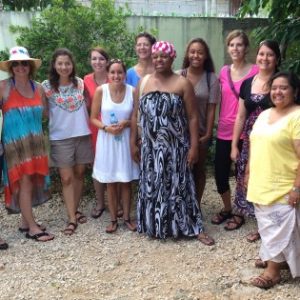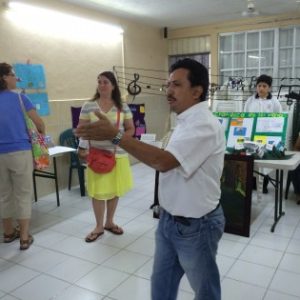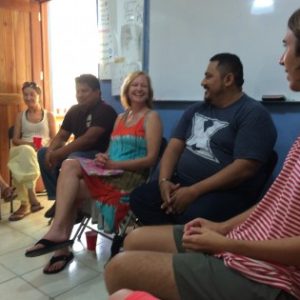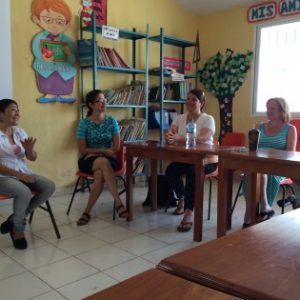Study Tours to Latin America and the Caribbean
The Educational Outreach Program offers study tours for teachers that provide opportunities for meaningful and substantive hands-on learning about Latin America and the Caribbean. Participating teachers engage in pre-trip workshops to deepen their understanding of the country they will visit and examine their role as a U.S. teacher in a global context. During the study tour, teachers visit places of historical, cultural and political significance, discuss their experiences in the classroom with local teachers, and at times, participate in a homestay. Following the trip, teachers create and disseminate new curriculum based on their research and exploration of a relevant topic.
Costa Rica Study Tour 2025
Nine North Carolina educators traveled to Turrialba, Costa Rica for a study tour focused on environmental and sustainable education from July 21-28, 2025. The group included two pre-service teachers who recently earned their Master of Arts in Teaching (MAT); one is a recent graduate from Duke University and the other is a graduate from the University of North Carolina at Chapel Hill. The Consortium worked with Bethzaida Fernández, a Senior Lecturer from Romance Studies at Duke University, to develop an itinerary for the study tour.
Prior to the tour, the participants completed pre-readings and an e-learning course to prepare them for the unique learning experiences. Highlights of the tour included a conversation and dance class with local educators, a day spent at the CATIE (Tropical Agricultural Research and Higher Education Center) botanical gardens, and an afternoon at a sustainable farm to make cheese.
Jackie Carrelha, a Wake County Schools educator reflected on her experience, “I had read about Costa Rica before, but experiencing it firsthand gave me a much deeper understanding of the spirit of its culture, the warmth of its people, and the challenges they face. Hearing directly from teachers about how many students attend schools with limited resources challenged me to reflect on my own teaching practice. It made me consider how I can better support the students I work with who face similar circumstances.”
The participants received continuing education units for their state licensure requirements. They will create lesson plans that are informed by the tour. To find relevant resources to support learning and teaching about Costa Rica, visit the Consortium educational outreach webpage.
Eli Teague, a Chatham County Schools educator summed up his study tour experience and the impact of experiential learning, “I feel a stronger connection to nature than I ever have before and a deeper appreciation for our role in it. I feel confident in myself and my ability to try new things and navigate other cultures, even mostly in Spanish.”
This study tour was supported in part by grant funding from the U.S. Department of Education’s Title VI National Resource Centers program. The content of this tour does not necessarily represent the policy of the U.S. Department of Education, and you should not assume endorsement by the Federal Government.

Past study tours include:
2018: Connecting the Americas Scholars Program: From Durham, North Carolina to Guanajuato, Mexico (sponsored by the Duke Office of Durham & Regional Affairs and the UNC-Duke Consortium in Latin American and Caribbean Studies)
2014: Connecting the Americas: From North Carolina to Yucatán, Mexico (sponsored by the UNC-Duke Consortium in Latin American and Caribbean Studies)
Photos from Connecting the Americas: From North Carolina to Yucatán, Mexico, June 17-26, 2014








